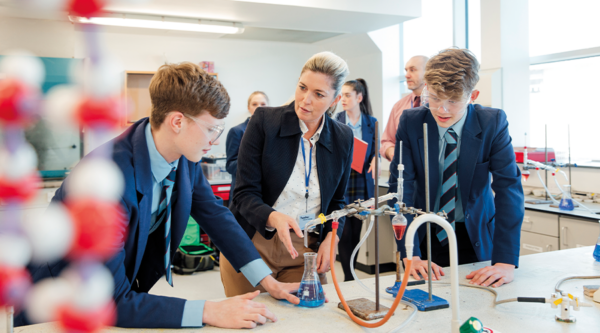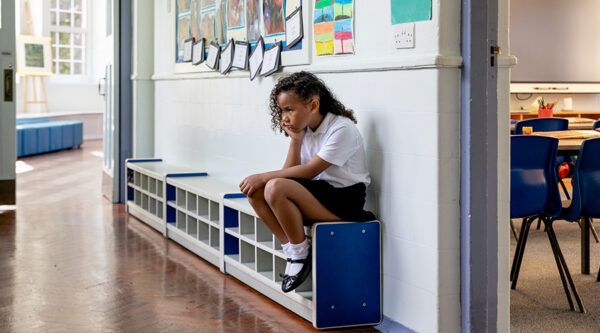

On 3 February 2025 a consultation opened to consider how the way Ofsted inspects education can be improved. Parents, carers, professionals and learners are being asked to provide their views on Ofsted’s proposals to improve education inspections and the introduction of new report cards for schools.
The proposals covered by the consultation include:
- Report cards for schools
- Education inspection toolkits
- A new inspection methodology
- Ending ungraded inspections
- Identifying schools causing concern,
Report cards
Ofsted has reported that the outcome of last year’s ‘Big Listen’ identified that parents and schools did not consider that single-grade judgements sufficiently identified the school’s strengths and areas for improvement.
Ofsted proposes to implement a 5-point scale, grading various areas of a school including ‘curriculum’ and ‘leadership’. The report card will provide a short summary of Ofsted’s findings in these areas. This means that there will no longer be a single overall effectiveness grade for schools. The proposed evaluation areas for all schools, including independent schools, are:
- Leadership and governance
- Curriculum
- Developing teaching
- Achievement
- Behaviour and attitudes
- Attendance
- Personal development and well-being
- Inclusion
- Safeguarding
- Early years in schools (where applicable)
- Sixth form in schools (where applicable).
In addition, the evaluation scale is aimed to provide more nuance in the information given. It is proposed that each of the above evaluation areas will be graded on a 5-point scale, from exemplary to causing concern.
Education inspection toolkits
Ofsted also proposes to introduce separate inspection toolkits for early years, state-funded schools, non-association independent schools, further education and skills and initial teacher education. The toolkits will outline the quality Ofsted expects to see at each point on the evaluation scale. Ofsted has stated that its aim is to align the inspection of non-association independent schools and state-funded schools so far as possible to enable schools in different sectors to be fairly compared.
Ofsted also seeks to bring the explanations currently in the inspection handbooks into the toolkits, with the aim of putting as much of its inspection-related information as possible into one place. Making the materials more accessible and useful.
For example, some of the indicators set out in the draft school inspection toolkit which signify that a school is ‘secure’ in respect of its leadership of behaviour and attitudes are consistent with the factors set out in respect of Ofsted’s approach to evaluating behaviour and attitudes in the current School inspection handbook for maintained schools and academies.
Ofsted has not, however, confirmed whether its intention is to retract the handbooks in favour of the toolkits. We recommend Schools review the inspection toolkits to ensure that they understand Ofsted’s proposals for evaluation the school’s performance against the various evaluation criteria.
Inspection methodology
As well as changing the presentation of the inspection outcome to parents, Ofsted is also seeking to change its inspection methodology, particularly in respect of the professional interaction and conversation between inspectors and school leaders.
In changing its methodology, Ofsted will no longer use the ‘deep-dive’ methodology, freeing up time to allow school leaders and inspectors to reflect on the school’s unique context and improvement priorities.
Schools will not be expected to provide written evidence to support each standard within each evaluation area of the toolkit. Instead, inspectors will use the inspection to build a cumulative picture of what it is typically like to be a pupil at the school.
In evaluating the school, inspectors and school leaders will discuss where the school succeeds, and where there are challenges. The inspector will then consider the evidence gathered against the most appropriate standards in each evaluation area.
It may be that the emerging grade for an evaluation area will not align with the school leaders’ views. In these cases, inspectors will ask school leaders to suggest who else they should speak to, and other evidence which could be considered to ensure that they have a broad range of evidence to reach their conclusion. At the end of the inspection the inspector will clearly state the evidence that has led to their provisional conclusions and will reflect this in the report card.
Full inspections and monitoring inspections
From November 2025, Ofsted proposes that all inspections of state schools will be ‘full’ inspections, meaning that ungraded inspections will no longer be carried out. It is hoped that this will mean that every school will know exactly what kind of inspection it will receive, and how often.
Where a school has one or more evaluation areas graded as ‘attention needed’, it will be subject to a monitoring visit focused only on the areas that need attention. It is hoped that inspectors will then be able to provide reassurance that the school is making improvements and those evaluation areas in question are ‘secure’.
Schools causing concern
Ofsted inspections can results in a state-funded school being placed into one of two categories of concern:
- Schools with widespread issues are categorised as ‘special measures’
- Schools with more specific issues are categorised as ‘serious weaknesses’.
Ofsted proposes that, whilst this will largely remain unchanged, schools with ‘serious weaknesses’ will instead be referred to as ‘requires significant improvement’, to avoid confusion. However, as is currently the case, Ofsted will not determine that future of a school placed in a category of concern.
Responses to the consultation
Ofsted wants to ensure views are considered in changing to approach it takes to the inspection process. Responses to consultation can be provided until 11:59pm on 28 April 2025, at which point the consultation will close. The consultation can be accessed here.
If you have any questions in respect of the above issues, or anything in relation to the Ofsted consultation, please contact Paul Watkins, or your usual contact at HCR law.
How can we help you?
"*" indicates required fields










